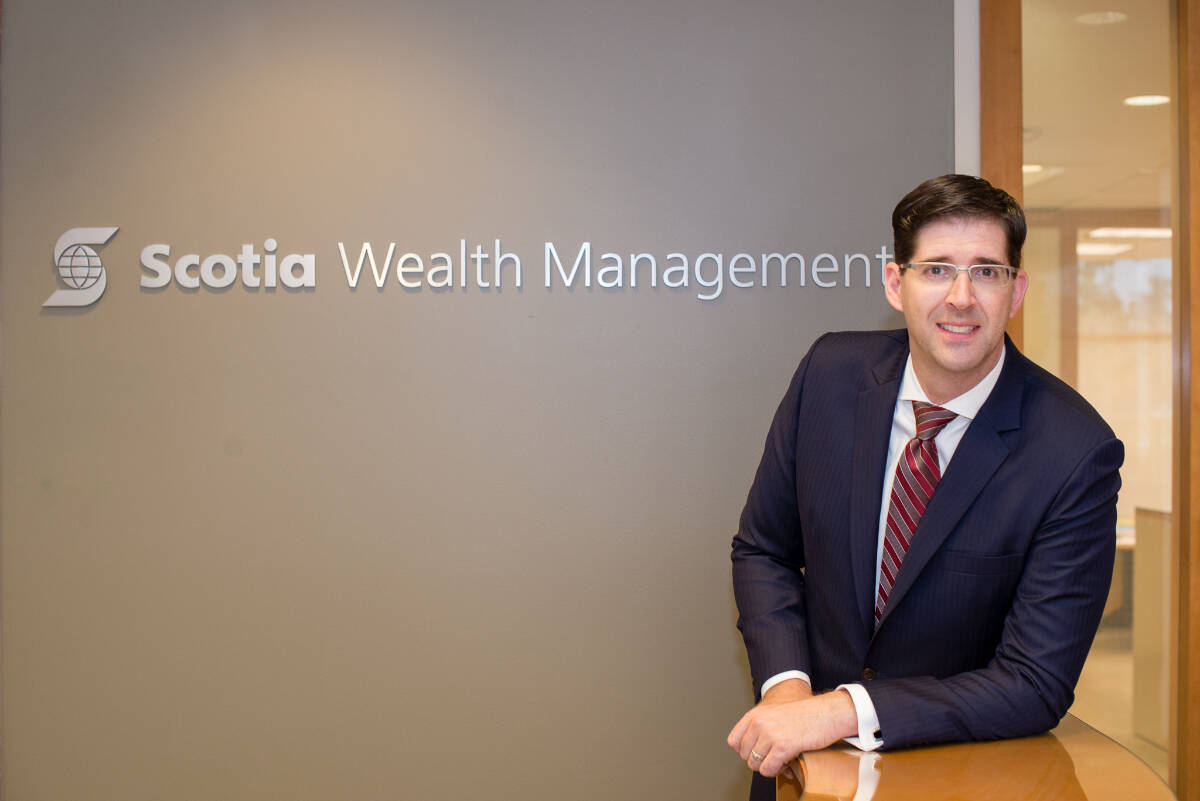Death & Taxes Part 2

Scotia Wealth Management Senior Wealth Advisor, Dave Lee, offers Total Wealth Planning in White Rock. To book an appointment, call 604.535.4743 or email dave.lee@scotiawealth.com.
If you’d rather leave more of your estate to your beneficiaries and less to government, it’s essential to sit down with your wealth advisor to chart the most tax-efficient course.
Because while Canada doesn’t have an inheritance tax, probate fees and income tax will directly impact how much is left for your loved ones, favourite charities or, as is often the case, a combination of both.
Last month, we explored the basics of these fees and taxes with Dave Lee, Senior Wealth Advisor with Scotia Wealth Management in White Rock. This month, we look at some of the strategies to mitigate them.
“While we all operate under the same rules, the best approach for your unique situation will also be unique to you,” Dave notes.
For example, a younger individual with years left to draw on – or continue adding to – their investments may have a much different strategy than someone later in life.
Likewise, a business owner or a senior facing claw back of their Old Age Security pension may make a different choice than someone else.
Money-saving solutions
Probate is payable only on assets that are owned solely, so joint ownership is often used, particularly between spouses to deliver assets to the survivor, keeping it out of the estate. Business owners will sometimes use a “second Will” for corporate shares, and trusts can be fruitful in some circumstances.
Drawing a RRIF down over multiple years at modest tax rates can help avoid spiking the final tax return into the top tax bracket of 53.5 per cent, Dave notes. “Happily, the best tax strategy is often for both partners to stay healthy for a long time.”
You could also gift part of your estate years before you pass away – such as that family cabin that’s appreciated considerably, bringing significant capital gains. You’ll still need to pay the capital gains tax, but you could arrange the gift in a year when your other income is less.
Other options include shielding or deferring tax with a family trust or using an insurance policy to pay for the tax liability when it does arise.
Charitable giving generates a charitable tax receipt for the full value of the gift which can be used to pay tax owed by an estate. If planned well, it can also reduce capital gains taxes.
Just like medicine, which in some cases provides a “quick fix” for health issues, there are some financial strategies that provide immediate benefit when used appropriately following a skillful diagnosis. Another parallel is that there are health strategies such as diet and exercise that provide their greatest benefit over a span of many years, and some financial strategies take similarly long periods of implementation to accrue maximum benefit.
To make the most of your estate for the people and causes you care about, sit down early with your financial planner and remember to revisit your approach regularly to adjust as needed.
Dave Lee CIM, CFP, FCSI is a Senior Wealth Advisor with Scotia Wealth Management in White Rock. He can be reached at dave.lee@scotiawealth.com or
Enjoying these articles? Visit www.dave-lee.ca/publications to read more.
